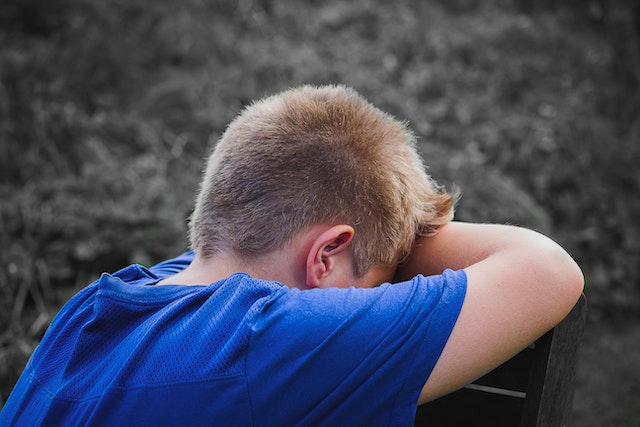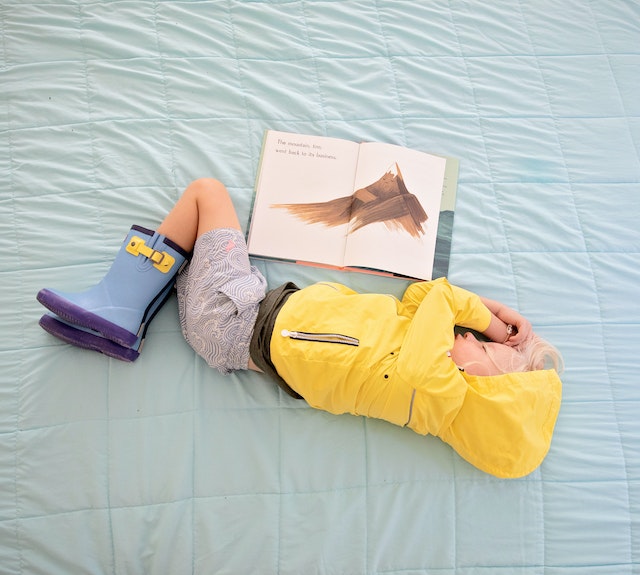Comments
- No comments found

Bedwetting, also known as nocturnal enuresis, is a common issue that affects many children around the world.
It is often seen as a degrading and embarrassing issue for both the child and the parents, and it can lead to emotional distress and anxiety. However, bedwetting is not a deliberate action by the child, and it is essential to understand the underlying reasons for it. In this article, we will explore the various causes of bedwetting in children and how parents can help their children overcome this problem.
While bedwetting can be distressing for both children and parents, it is essential to understand that there are various reasons why a child might wet the bed. Some children may not feel the need to pee while sleeping, while others may make too much urine at night. Additionally, stress at home or school can also contribute to bedwetting. However, it is crucial to rule out any underlying health conditions such as diabetes or constipation if bedwetting persists. With the right management strategies and support, children can overcome bedwetting and regain their confidence.

One of the most common causes of bedwetting is an underdeveloped bladder. Children have smaller bladders than adults, which means they can only hold a limited amount of urine. As a result, they may need to urinate frequently, including during the night. In some cases, children may have a small bladder due to a genetic condition, which means they may be more prone to bedwetting.
Developmental delays can also lead to bedwetting in children. If a child's body is not fully developed, they may struggle with controlling their bladder during the night. This can be due to a variety of reasons, such as delayed physical or cognitive development. For example, a child with Down syndrome may have a delayed bladder control mechanism, leading to bedwetting.
Hormonal imbalances can also contribute to bedwetting in children. Hormones such as vasopressin help regulate the amount of urine produced by the kidneys. If a child's body does not produce enough vasopressin, they may produce too much urine during the night, leading to bedwetting.
Children who are deep sleepers may also struggle with bedwetting. When a child is in a deep sleep, their brain may not register the signal from the bladder that it is full. As a result, the child may not wake up in time to use the bathroom, leading to bedwetting.
Stressful events can also contribute to bedwetting in children. Major life changes, such as starting school or moving to a new home, can cause anxiety and stress in children, which can lead to bedwetting. Additionally, conflicts within the family, such as parental divorce or the arrival of a new sibling, can also trigger bedwetting.
Traumatic experiences can also contribute to bedwetting in children. If a child has experienced a traumatic event, such as abuse or neglect, they may struggle with anxiety and fear, leading to bedwetting. Additionally, children who have witnessed traumatic events, such as natural disasters or accidents, may also struggle with bedwetting.
Fears can also contribute to bedwetting in children. Children who are afraid of the dark or being alone may struggle with anxiety at night, leading to bedwetting. Additionally, children who have a fear of ghosts or other imaginary creatures may also struggle with bedwetting.
Irregular sleeping patterns can also contribute to bedwetting in children. If a child is not getting enough sleep or is sleeping at irregular times, their brain may not be able to regulate their bladder control mechanism effectively. As a result, the child may experience bedwetting.
Children with attention-deficit/hyperactivity disorder (ADHD) may also struggle with bedwetting. Research has shown that children with ADHD are three times more likely to experience bedwetting than children without the disorder. The reason for this is not entirely clear, but it may be due to the fact that children with ADHD often have difficulty regulating their impulses.
In some cases, bedwetting may be a symptom of an underlying medical condition. For example, diabetes can cause increased urine production, leading to bedwetting. Additionally, urinary tract infections or other bladder-related issues can also contribute to bedwetting. It is essential to rule out any underlying medical conditions if bedwetting persists, especially if the child is experiencing other symptoms such as pain or discomfort.
Bedwetting can also run in families, which suggests a genetic link. Children whose parents struggled with bedwetting may also experience it themselves. However, genetics alone may not be the sole reason for bedwetting, and environmental factors may also play a role.

Bedwetting can be a distressing issue for both the child and the parents. However, there are ways to help children overcome bedwetting and regain their confidence.
Encourage your child to drink plenty of water during the day but limit their fluid intake a few hours before bedtime. Ensure that your child goes to the bathroom before going to bed and establish a regular bedtime routine. You may also consider waking up your child in the middle of the night to use the bathroom.
Bedwetting alarms are devices that trigger an alarm when the child wets the bed. These alarms can help train the child's brain to recognize the feeling of a full bladder and wake up in time to use the bathroom. Bedwetting alarms can be effective but may take several weeks or months to work.
If bedwetting persists, it is essential to seek professional help. A pediatrician or a urologist can help rule out any underlying medical conditions and provide guidance on how to manage bedwetting effectively. Additionally, a mental health professional may help address any underlying emotional issues that may be contributing to bedwetting.
Bedwetting can be embarrassing and distressing for children. It is essential to provide emotional support and reassurance to your child. Let them know that bedwetting is a common issue that many children experience and that it is not their fault. Praise them for their efforts and progress, and avoid shaming or punishing them for bedwetting.
Bedwetting is a frequent problem that affects many children around the world. It can be caused by various factors, including underdeveloped bladder size, developmental delays, hormonal imbalances, deep sleepers, stressful events, traumatic experiences, fears, irregular sleeping patterns, ADHD, genetics, and underlying medical conditions. It is essential to identify the underlying cause of bedwetting and provide effective management strategies. Encouraging healthy habits, using bedwetting alarms, seeking professional help, and providing emotional support can all help children overcome bedwetting and regain their confidence. With patience and understanding, parents can help their children overcome this issue and achieve a good night's sleep.
Riddhi Doshi trains and coaches corporate leaders, educators and parents on issues of mental health and behavior. She is an internationally certified Parenting & Behaviour Coach. In past 15+ years she has conducted 2540+ open workshops, delivered 87000+ hours of talks, 53000+ hours of counseling sessions covering 59000+ students and 62,000+ women from various fields. Parenting sessions conducted by Riddhi are housefull and recent;y she completed her 366th Parenting session. She has been a speaker and advisor at various institutions and organizations including IIM, Ahmedabad, Rotary Club, Tata Power, Larson & Toubro and The Time of India. She holds an MBA in HRD, LLM and numerous other professional certifications from prestigious international institutions including University of Cambridge, BSY University, London, City & Guilds, London, Tata Institute of Social Sciences and NMIMS, Mumbai. She has been awarded with “National Award for Cultural Activities by AVANTIKA- Delhi”, “Excellence in Wellness”, “Young Entrepreneurs Award”, “Self Made Diva Award” among various others. With a mission to “make corporate leaders, educators and parents empowered and more aware about mental health & wellness”, Riddhi regularly gives interviews on leading media platforms. She loves to interact with corporate leaders, educators and parents to discuss about women issues, child psychology and parenting challenges.
Leave your comments
Post comment as a guest